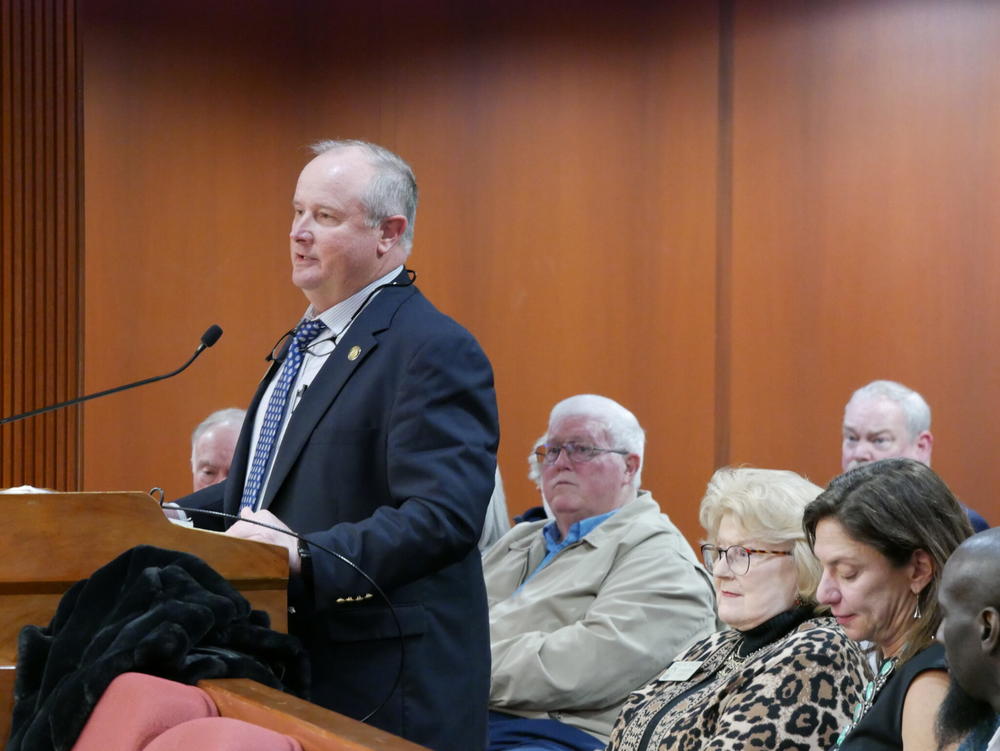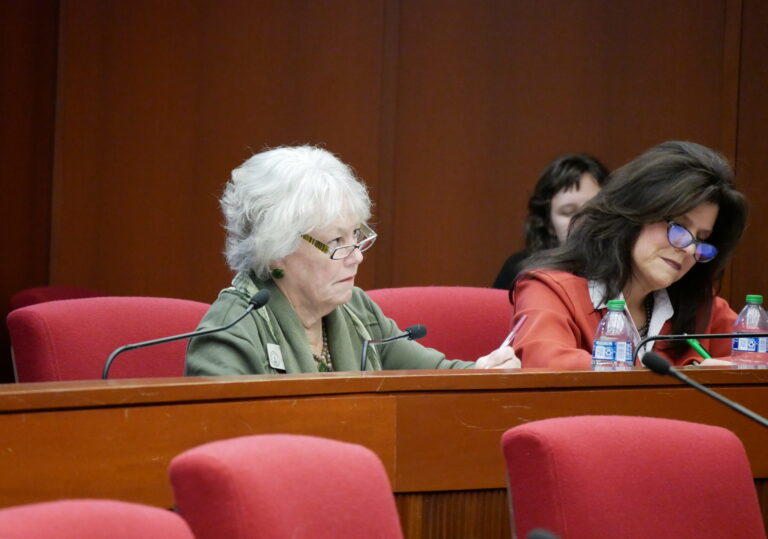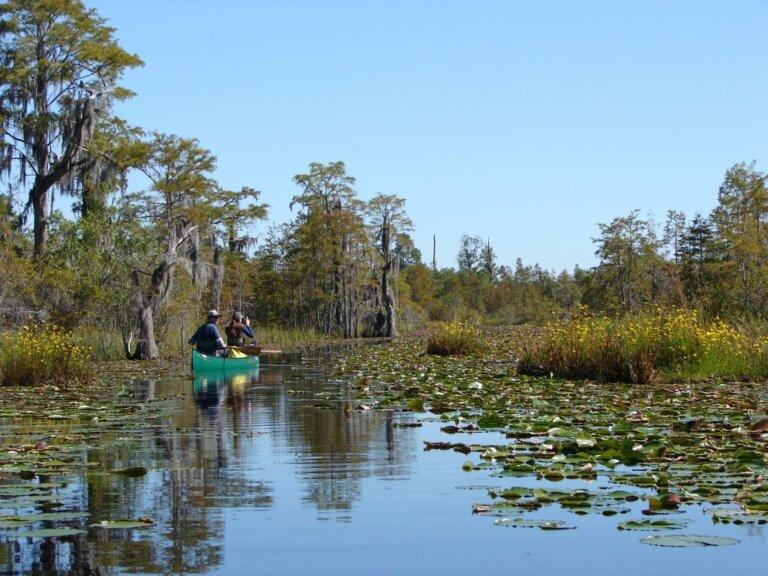
Caption
Rep. John Corbett, a Lake Park Republican, speaks against a bill that would ban future mining applications at Trail Ridge near the Okefenokee Swamp as the bill sponsor, Rep. Darlene Taylor, sits to his left.
Credit: Jill Nolin / Georgia Recorder



